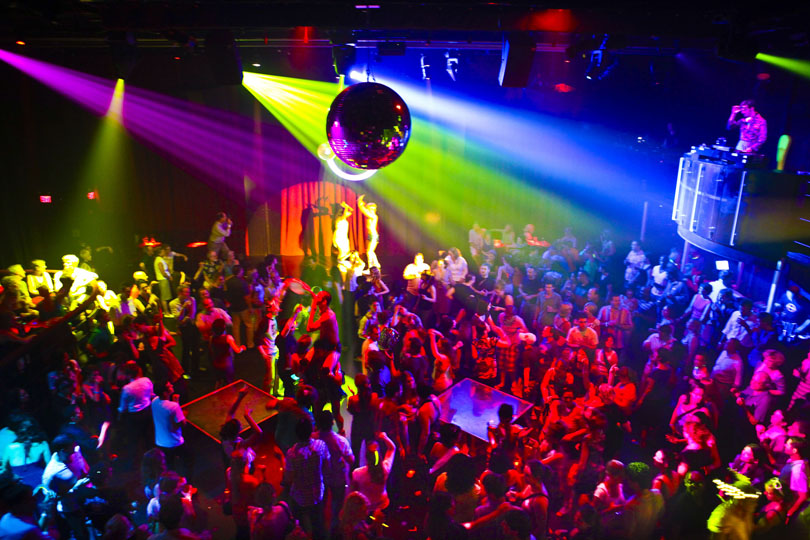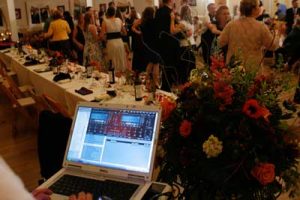
Pic from: harrisburgpadj
We get plenty of questions from newer DJs wondering how they can go from bedroom to superstar, or even to just playing gigs regularly. It made us realise that one of the most important jobs we have in our position as a popular digital DJing website is to help you to get where you want to go as a DJ. Of course, it’s going to take more than one article, and it’s going to take you more than a few weeks to get there too, so this is the first part of a major weekly series that will run for the next three months, where we’ll give you a complete roadmap to help you to get out there, get gigs, and get the success you’re looking for out of DJing. If you commit to starting seriously on your journey today, we guarantee you’ll be well on your way to getting somewhere good by the end of this in-depth course. But first…
An introduction
Literally every day a DJ is asking someone somewhere for tips and advice on how to get gigs playing in clubs or parties or even how to become the next superstar. With millions of DJs in competition to get to higher levels than the bedroom, it can be a daunting task. I don’t consider myself as anyone famous or big in the industry, but I have endured many of the challenges a DJ faces in trying to make something of all this. A few years ago, I published an early version of this guide on a public message board for DJs. I felt all the questions being asked were becoming repetitive, and wanted to share what I’d learned since I started DJing in 1992. What I’m going to give you here and for the next three months is a revised, improved version of that original guide, taking into account all the feedback I’ve had since I first penned this advice, and all the changes that have happened in the DJing world since then. Every week, there will be a new article focusing on aspects of dealing with the industry and especially on how to market yourself. Start thinking now about your “brand” My day job is in building interactive media for a large ad agency, so I’ve seen and learned how to do more than just promote, but to market and build a brand. My hope is to drive you into building yourself into a solid brand with a good message that will make people tune in and book you for the kinds of events you want to play at. But it has to be done properly. I think too many DJs and promoters worry too much about pushing themselves, and do not worry enough about the quality or clarity of the actual product or service they are pushing. Yet we see the bigger names now have managers, public relations people, and run themselves as a company with a clear brand. They have logos, a certain image they live up to, all of which is part of why they play in front of thousands while others might not ever get past the bedroom. Let’s start our journey.
The five types of DJ…

When I meet many younger DJs who want to play out, I can tell they’re hungry, but also that they have a dream in mind of what they really want. Many want to be big names like Paul Van Dyk or Deadmau5. Some just want regular work and be able to pay the bills. Others even have entrepreneurial dreams of running a larger entertainment company. If you’ve noticed, DJing isn’t a one-track ideology. It’s not the same job in every venue you end up in. Playing for a wedding is not like playing in a massive rave. Playing in a sports bar isn’t the same as playing for a big club. In order to better market yourself, you need to focus on the kinds of DJing you want to get into. I’ve tried to classify them into five groups to help you: Mobile DJs – These are the guys who are playing at wedding receptions, bar mitzvahs, corporate events and so on. You’ll see them invest in not only the “decks” and mixer, but also in lights, speakers, and the means to have a full setup to build a party anywhere. Their technique is mainly to play in a radio style and be a human jukebox to an extent. Requests are heavy and they fulfil them in the best means possible. Sports/college bar DJ – If you see one of these DJs playing, you might think they are similar to mobile DJs, but they are more a cross between what you’ll see a mobile DJ do and what a club DJ will do. While in a club you can stick to a few kinds of sounds (house, rap, pop, etc), the bar DJ more or less has to play across the board to build a fun atmosphere. So he could play house, but then classic rock and then popular rap music. He might mix sometimes or just slam in tunes like the radio would. He might not own speakers and lights, but just have a setup at home to play on. His bread and butter is playing mobile-style in venues that have the sounds and lights. Mainstream club DJ – Moving up the ladder from playing smaller bars is the mainstream club. These are the spots you’ll see that might range from the tourist trap to the glam bottle service club. What makes this kind of DJ gig similar to the bar gig is that you’re playing all mainstream music and taking requests. What differs is you have more freedom on what you can play and how you handle requests. So the girl asking for Katy Perry might get her request played, but the older guy asking for heavy metal can be told in no uncertain terms where to get off! You also have the freedom to play more remixes of these pop tunes, and build a vibe based on the venue and promoter. DJs here are generally mixing always and rarely slamming in tracks or making announcements like you’ll see in the bars and private events. You also have the propensity to become bigger with some imagination. The late DJ AM is one example, and love him or hate him, DJ Pauly D is another.

Underground club DJ – This is probably the one spot most young DJs want to be in. Big or small, they want to be the DJ in the cool venue that plays music that isn’t normally heard in the realm of the mainstream. They want to either open for or become as big as the superstars they worship. In this scene, you’re booked not to just please individual people but to please the masses. This could mean playing an effective opening set before a big name, or even being big enough that people run out to hear you because of what you play and what you’re into… rather than push you to play what they are into. You pretty much can put up a big sign saying “no requests” and get away with it fully. Rave DJ – I could throw this under the “underground club DJ” slot, but there is a bigger difference now between someone who shows up and playing a normal set of house or trance in a big club versus the guy who shows up at a massive one-night event and plays music most clubs wouldn’t touch. In the past it was jungle, hardcore, drum and bass, or even chill out music. Now it could be dubstep or indie/nu disco. The rave DJ is brought out not only because he/she has something to offer the event, but because he/she won’t do things within the constraints club and bar DJs have to face. And not forgetting “controllerists”… So I’m sure many controllerists are wondering where they fall. Maybe they play loads of mashups on several controllers and never touch anything close to traditional DJing. I say you need to let your sound, music selection, and the crowds you’re going after decide. If you can play a great mashup set of pop and rock hits weekly at some college bar, then good for you, otherwise if frat boys and suburban girls roll their eyes at you and want a “normal” DJ, then perhaps you’re more meant for the underground side of things.
Do I have to pick one?
No. In many cases, these “buckets” can overlap. A mobile DJ can do well as a college/sports bar DJ, and even do mainstream club play. I’ve seen many mobile DJs also hold residencies in the college/sports bar scene and likewise seen some mainstream club DJs also hold college/sports bar gigs. Now comes the question if a mobile or college/sports bar DJ can also work the underground or rave scene. I’m not saying it can’t happen, but I will say it’s not very easy. This comes back to that word “branding” I mentioned earlier. In my experiences, the underground and rave scene patrons and promoters are fickle, and skeptical of a guy who wants to come play their events when he’s more known to play bars and weddings. It comes back to the branding image you portray, so showing up to the rave promoter with a CD and business card aimed at mobile gigs won’t score for you.

Even if the demo is all tech house and dubstep, it still might not work out if people know you more as a mainstream music DJ. I know when I played trance at a few events, many thought I was just a trance DJ, and was surprised when I showed up with demos containing deep Chicago-style house. That did become a burden. There is a way around this though. In the past, many artists used to have aliases for different sounds. Cajmere is one big example. He would go by “Cajmere” for house music and then make techno under “Green Velvet”. Likewise you could perhaps be John Doe Entertainment for weddings and then make the name “J. Digital” for the rave scene or something. I will say though this will mean you’re making a bigger investment in music over the long term. Not only would you be shopping iTunes for the mainstream hits to use in that wedding, but you’d also be all over Beatport looking for the underground music you want to play at those events. Plus you might have to get two sets of everything in terms of marketing materials like business cards and web sites. The key point in choosing your focus is that this is the start of how you can build yourself as a brand to sell. If you think of the name “Ford”, then you’ll immediately know it is automobiles. If you think of the name “Kraft”, then you’ll think of food products. However, if Kraft came out suddenly with a smartphone, wouldn’t you be skeptical? This is the same with DJing.
Next week
Next week, I’m going to hit you with an early dose of reality in this business, that will help you gain perspective and show you what you’re up against right from the start. If you want to succeed, it’s vital you know how the business really operates. So work out what kind of DJ you want to be, and get ready to start doing the work to help get you there. See you in a week! • D-Jam is a Chicago nightclub and rave DJ by night, and a branding expert by day. Check out his website.
Check out the other parts in this series:
- How To Succeed at DJing, Part 2: Play the Popularity Game
- How To Succeed at DJing, Part 3: Get Involved in Your Local Scene
- How To Succeed at DJing, Part 4: Join an Entertainment Firm or Promotion Crew
- How To Succeed at DJing, Part 5: Make it a Full-time Effort
- How To Succeed at DJing, Part 6: Accept This Is the Music Industry
- How To Succeed at DJing, Part 7: Market Yourself Like a Pro
- How To Succeed at DJing, Part 8: “You Only Get What You Give”
- How To Succeed at DJing, Part 9: Get a Demo & Press Kit
- How To Succeed at DJing, Part 10: Hit the Street
- How To Succeed at DJing, Part 11: Promote Yourself Online
- How To Succeed at DJing, Part 12: Build Yourself a Website
- How To Succeed at DJing, Part 13: Think Beyond Gigs
We want you to ask questions and get involved right from the off, so please feel free to post your queries and thoughts in the comments. We’re here to help.








